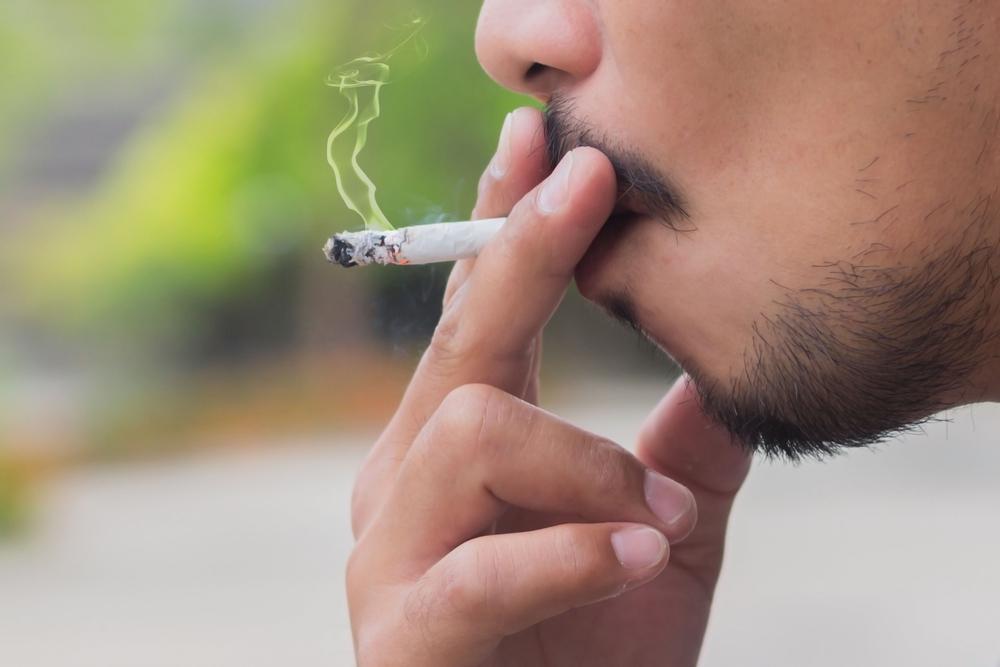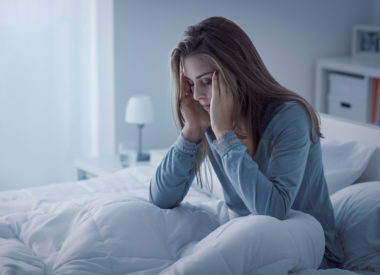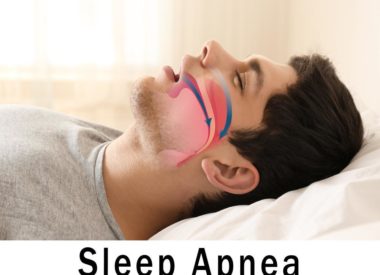That evening drag: the problem of smoking and sleep apnea
Smokers often believe that having a bedtime cigarette helps them to sleep better.
Nicotine does seem to relax the body in certain ways to make this theory believable.
However, smoking does more harm than good when it comes to sleep health.
If you consider how smoking also leads to chronic breathing concerns and myriad diseases and health problems, it seems like the brief relaxation benefit of a quick puff (or vape) at bedtime may not be worth the risk.
Check out these 3reasons why smoking creates sleep problems, especially as they relate to obstructive sleep apnea (OSA).
Smoking induces upper airway inflammation
The ingredients in a cigarette, when burned and inhaled, are essentially pollutants to the respiratory system that cause an inflammatory response.
This response includes swelling of the bronchial tubes (or bronchus , as shown in the diagram) and an increase in mucus, which acts to remove irritants from the airways. Too much mucus leaves you feeling congested.
It’s worth noting that this inflammatory response is not all that different from what happens to someone with asthma.
Smoking causes snoring, a risk factor for sleep apnea
It’s already understood that someone diagnosed with sleep apnea is going to aggravate their condition if they continue to smoke (and especially if they don’t treat their sleep apnea).
Smoking is also well known for its relationship to snoring.
Someone who smokes is more likely to develop a snoring problem. Their snoring will be more frequent, and their snoring will be louder and more severe, than that of someone who doesn’t smoke.
Given what we already know about the association between snoring and sleep apnea, it’s worth taking a closer look at whether smoking may directly lead to the development of sleep apnea.
Researchers are working on it. They know that smoking has a chemical influence over the tone of both the upper airway muscles and tissues (such as the uvula).
Right after smoking, the tone may improve briefly, but once the relaxation effect of smoking sets in, so does the collapsibility of the upper airway, which leads to partial obstructions (such as snoring and upper airway resistance syndrome, or UARS) or complete obstructions of the airway (obstructive sleep apnea).
Short-term withdrawal leads to sleeplessness
This is similar to the problem we have when we enjoy an “evening nightcap” (or alcoholic beverage) right before bed : we experience a “rebound effect” that’s caused by short-term chemical withdrawal.
If you smoke before bed, then awaken frequently at night (maybe even to have a midnight smoke), the chances are good that you have a sleep breathing disorder that’s causing your arousals.
Smokers have a higher propensity for nocturnal awakenings.When studied in a lab, they experience more respiratory events, such as apneas, than their nonsmoking counterparts. These events also last longer and lead to higher drops in blood oxygen, suggesting that the signaling system between the brain and the respiratory system may be impaired during sleep due to the presence of nicotine in the system.
If you don’t already have sleep apnea
Smokers who do not have sleep apnea or other sleep breathing disorders will likely enjoy the break for a limited time. Smoking leads to other respiratory problems, including asthma, emphysema, and chronic bronchitis, as well as lung cancer.
COPD
Continuing to smoke certainly increases the odds of having sleep breathing challenges in the future. Eventually, the damage caused by smoking will lead to chronic obstructive pulmonary disease (COPD), which makes breathing difficult both day and night.
SECOND-HAND SMOKE
Also keep in mind: second-hand smoke can lead to these same problems with sleeping partners. Even if your smoking doesn’t seem to affect your health, it could still be quite detrimental to the health of those around you.
SUDDEN INFANT DEATH SYNDROME (SIDS)
There’s been a great deal of research done on the relationship between second-hand smoke and sudden infant death syndrome (SIDS) which is related to disruptions in breathing patterns in newborns exposed to cigarette smoke.
If you have sleep apnea
People who already have sleep apnea but who continue to smoke should not expect a reprieve from poor sleep any time soon.
Even if you are treating your sleep apnea, your continued smoking habit is going to infringe upon those benefits. It really behooves you to consider quitting if you want to overcome problems with sleep apnea or insomnia.
Quitting smoking prevents much more than sleep problems: Aside from lung cancer, which killed nearly 160,000 Americans in 2015 alone, COPD remains one of the worst outcomes of long-term smoking and can make sleeping a nightmare.
Also, if you develop OSA on top of COPD, you’ll develop Overlap Syndrome, which is difficult to live with as well as to treat.
If you need help with sleep problems and you’re a smoker, consulting with both your primary care physician and a sleep specialist may be the ticket for successfully quitting and reclaiming not only good sleep, but good health.
Sources:
American Journal of Respiratory and Critical Care Medicine
American Lung Association
CHEST
Journal of Clinical Sleep Medicine
Mayo Clinic



